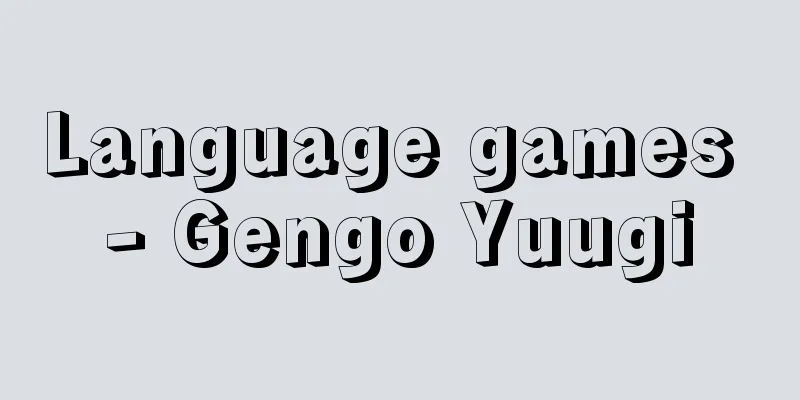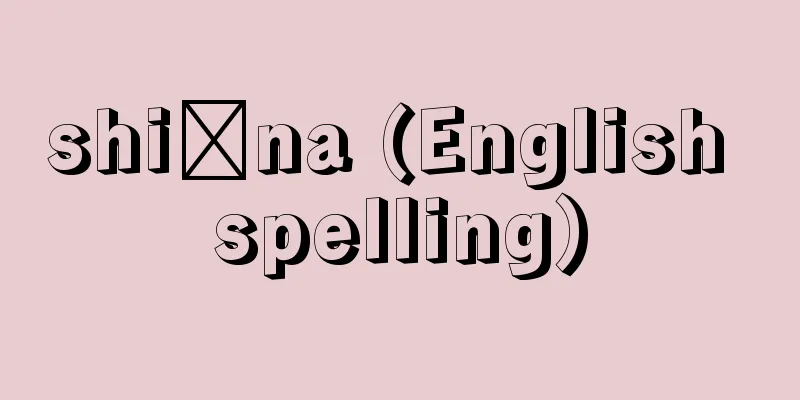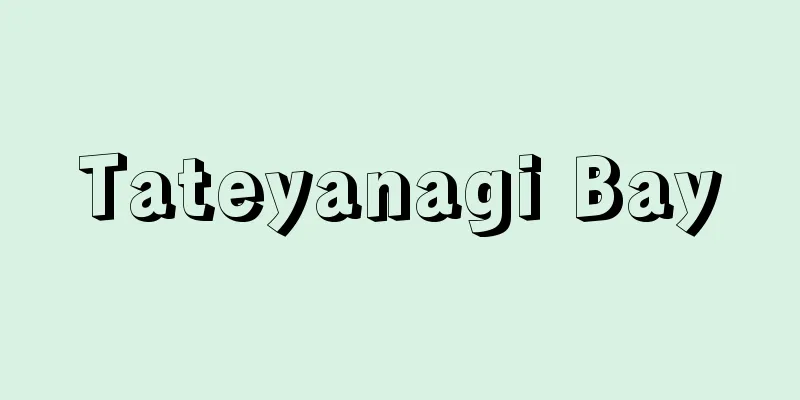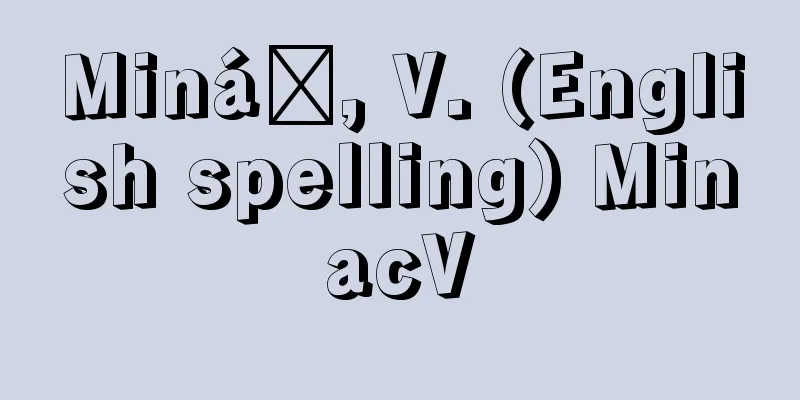Language games - Gengo Yuugi

|
It broadly refers to games that focus on words themselves and use them as material. Shiritori (word chain) and tongue twisters are games that use everyday words as material, but there are also games that fulfill practical needs such as certain coined characters and words that are playful (such as "Sakaki (a tree)," "Kamishimo (a kimono)," and "Ichiroku Bank (pawn shop)"). There are also games that take the form of verse but have a purpose in themselves as playfulness, such as palindrome songs, oriku (a syllabary), and kakushidai (a hidden rhyme), and even games that are refined as a technique for literary expression based on playfulness, such as kakekotoba (a hanging word). Depending on which aspect of the word is the clue to the playfulness, there are two types of language games: (1) those that use letters as clues and (2) those that use sounds as clues. A special form of game called "nazo (a puzzle)" exists that intertwines with this classification. [1] The things that use characters as clues include (1) those that create unusual characters or words, and (2) those that read common characters in a twisted way. (1) includes those that combine characters based on their meaning or sound, such as "Uwaki (偆), (Genki (Genki), (Fusagi (偢), (Inki (Himself), (Magotsuki)" and "Keio (Keio)", those that break down characters to create new words, such as "Kunoichi (Woman)" and "Roha (Just)", and those with a strong sense of playfulness, such as "Gyakudaiyokose = Give me money for sake" written as "" ("). On the other hand, (2) includes those that read "Koi (Love)" as "Itoshi (Thread) and Dear Heart" and "Kuchi (Kuchi)" as "Tanaka Juunai (Tanaka Juunai)". It can be said that the old "Manyoshu" (Collection of Manyoshu)'s playful readings (such as "Jusoku (Shishi)") also belong to this category. [2] Things that use sound as a clue include (1) things that allow one to enjoy the order and restrictions that sound brings, and (2) things that allow one to have fun by taking advantage of homonyms. (1) contains alliteration (I bought chestnuts at the dried goods store on the corner of Kanda Kajicho, but they were too hard to chew, so I'll give them back and go home), rhyme (tangerines, kumquats, sake liquor, my parents' anger, my children won't hear), palindrome (I woke up from a long, long night's sleep only to hear the sound of a boat riding the waves -- it sounds the same whether you read it forward or backward), ori-ku (if I'm used to coming here, I'll think of the long journey -- if you pick out the first sounds of each verse, it becomes 'kakitsubata'), and hidden title (high in the mountains, always in the storm, the flowers have fallen without even a hint of fragrance -- the succession of sounds in 'shinobu-kusa' is written so as not to stand out). In addition, the game of shiritori (a word chain game) is one in which the initial sound of the next word is restricted by the final sound of the previous word, and tongue twisters are a game in which players engage in saying a series of words that are difficult to pronounce accurately quickly and correctly. In that sense, both of these games fall under (1). On the other hand, category (2) includes kekotoba (As the spring rains fall , the green of the fields grows brighter), kuchiai (Sono te wa kuwana (grilled clams that you don't eat), mojiri (The founder was grateful for the melon skin that the ants were eating ), goroawase (Though you are young, you can see your white hair -- although the ocean is dark, you can see the white sails), and more. Also, puns (Thinking about monkeys' urine hanging on trees ), and witty questions and answers (How can even one senbei be called a thousand rice crackers? Even one manju is called a bun.) usually belong to category (2). The game form of the puzzle is to enjoy a shift in perspective, sometimes using homonyms. There are simple puzzles (What is a nut in the sea -- clams) (What is something you see with your hands -- a hot spring) and three-part riddles (A pun on Kusunoki Masashige and a summer cooling platform, with Ashikaga (the foot mosquito) attacking the heart ). In the former, the element of surprise in the "question" itself is resolved in one fell swoop, while in the latter, the superficial distance between the "ask" word (topic) and the "say" word is resolved in one fell swoop with the words "answer" and "heart," respectively. In these cases, homonyms and the multiple meanings of the same word are actively used to shift the perspective, which is the deciding factor. Puns in a broad sense, including so-called puns, as well as the aforementioned phrases, plays on words, wordplays, and puns, are, like riddles, a game of enjoying a momentary collision or shift in perspective or context, and in this respect it can be said to be the most distinctive way of playing in the world of language. [Keisuke Onoue] When we talk about language play or word play, in the narrow sense, the existence of an "intention" is assumed, but word play cannot be defined solely by the presence or absence of this "intention." "When summer comes, put on your clothes like the cicadas chirping" is a song that intends to subdue the fox by calling it "fox-fox," but to a third party, it is a word play by heteroanalysis. "Abracadabra" was originally a spell used as a talisman, but to modern people it is a game. Similarly, "Open Sesame!", which was a spell to open the gate for Ali Baba, is now an expression of play. The Romans seriously discussed the etymology of lucus a non lucendo (a place that does not receive sunlight, so it is called "forest"), but there are few games with such contradictory meanings. Ironically, lucus (forest) was "a place where light shines through." Therefore, in English, it is played with as a lucus - a - non - lucendo coffee-house (a coffee shop that does not sell coffee) to mean something that does not make sense. Furthermore, the riddle "What walks on four legs in the morning, two legs at noon, and three legs in the evening" is a game known to children all over the world, but for those who were asked the Sphinx's question, it was not a game but a matter of life and death. It is also said that Homer went mad and died after being unable to solve the riddle of the chisel, "I threw away what I caught, and brought back what I could not catch." The word "fox" is not a fox itself, and that animal can also be called a fox. In other words, the connection between words [symbols] and their objects [meanings] is arbitrary. The idea of Kotodama (the power of words) considers this to be absolute, and words are also used in spells. As long as we are not bound by this idea, words are essentially a game. The word fox can be divided into three letters, but kitsune cannot be divided into three correspondingly. The sign can be dissected into f and ox, but the animal fox cannot be dissected into ox. The fact that noon is pronounced the same backwards as forwards, and that the opposite of live is evil, are also unrelated to the world of meaning. Thus, it is possible to play around by defining about-face as ecaf-tuoba. The word child spelled backwards, dlihc, does not exist in English, but it is connected to a backward child, because backward also means "reverse." This independence of signs makes language play. [Toshio Gunji] "12 Lectures on Word Play, by Gunji Toshio (1984, Taishukan Shoten)" ▽ "Dictionary of English Riddles, edited by Gunji Toshio (1982, Kaitakusha)" ▽ "The Complete Collection of Nonsense, by Takahashi Koya (1977, Shobunsha)" ▽ "Encyclopedia of Play 1: Language Games, edited by Takahashi Koya (1979, Japan Britannica)" ▽ "New Edition Dictionary of Word Plays, edited by Suzuki Tozo (1981, Tokyodo Publishing)" ▽ "Word Plays, by Suzuki Tozo (Chuko Shinsho)" ▽ "Word Plays, by Pierre Guiraud, translated by Nakamura Eiko (Hakusuisha, Que sais-je Bunko)" [Reference] | | |©Shogakukan "> Main language games (examples) ©Shogakukan "> The spell "Abracadabra" Source: Shogakukan Encyclopedia Nipponica About Encyclopedia Nipponica Information | Legend |
|
ことばそのものに着目してそれを素材にした遊びを広くさす。しりとり、早口言葉などは日常語を素材とした遊びそのものであるが、ある種の造字、造語のように実用的な必要を満たしながら、そこに遊戯性のみられるもの(「榊(さかき)」「裃(かみしも)」「一六銀行〈質屋〉」)や、回文(かいぶん)歌、折句(おりく)、隠題(かくしだい)のように韻文の形をとりつつ遊戯性そのものに目的があるもの、さらには、懸詞(かけことば)のように遊戯性を基盤としつつ文学的な表現のための技巧として洗練されたものなどまで、さまざまある。言語遊戯は、その遊戯性がことばのどの側面を手掛りとして成り立っているかによって、〔1〕文字を手掛りとするもの、〔2〕音を手掛りとするものの2種があり、この分類と交錯して「謎(なぞ)」とよばれる特別な遊戯形式も成立している。 〔1〕文字を手掛りとするものには、(1)普通にはない文字や語をつくるもの、(2)普通にある文字をひねって読むもの、がある。(1)には「偆(うわき)、(げんき)、偢(ふさぎ)、佟(いんき)、(まごつき)」「(慶応)」のように意味、音の面から文字を合成するもの、「くノ一(女)」「ロハ(只)」のように文字を分解して新語をつくるものなどがあり、「」と書いて「逆大横セ=酒代よこせ」のように遊戯性の強いものもある。一方(2)は、「戀(恋)」を「いと(糸)し、いとしと言う心」と読み、「口」を「田中十内(ない)」と読むといった類のものである。古く『万葉集』にみえる戯訓(「十六(しし)」など)もこれに属するといってよい。 〔2〕音を手掛りとするものには、(1)音による秩序や制約を楽しむもの、(2)同音異義を利用して遊ぶもの、がある。(1)には、頭韻(神田鍛冶(かんだかじ)町の角(かど)の乾物屋でかちぐり買ったら固くてかめない返して帰ろう)、脚韻(みかんきんかん酒のかん親のせっかん子は聞かん)、回文(長(なが)き夜(よ)のとをの眠(ねぶ)りのみな目覚(めざ)め浪乗(なみの)り船(ふね)の音(をと)のよき哉(かな)――前から読んでも後ろから読んでも同じ音になる)、折句(からごろもきつつなれにしつましあればはるばる来ぬるたびをしぞ思ふ――各句の初めの音を拾うと「かきつばた」になる)、隠題(山高み常にあらしのふくさとはにほひもあへず花ぞ散りける――「しのぶ草」という音の連続が目だたないように詠み込まれている)などがある。 また、しりとり遊びは、前の単語の終わりの音によって次の単語の初めの音が制約される遊びであり、早口言葉は、正確に発音しにくい一連の語句をあえて早く正しくいうことに興ずる遊びであって、その意味で両者ともこの(1)に含まれるといってよい。一方(2)には、懸詞(わがせこが衣はる[張る・春]雨(さめ)ふるごとに野辺のみどりぞ色まさりける)をはじめとして、口合(くちあ)い(その手はくわな[食わな(い)・桑名]の焼き蛤(はまぐり))、もじり(お祖師さまありがたかりし[有難かりし・蟻(あり)がたかりし]瓜(うり)の皮)、語呂(ごろ)合わせ(年の若いのに白髪(しらが)が見える←―沖の暗いのに白帆が見える)などがあり、さらに、洒落(しゃれ)ことば(猿の小便で木にかかる[気にかかる])、頓知(とんち)問答(一枚でも煎[千]餅(せんべい)とはこれいかに――一個でも饅[万]頭(まんじゅう)というがごとし)などもたいていは(2)に属する。 謎という遊戯形式は、ときに同音異義語などを利用しつつ、視点の転換を楽しむものである。謎には単式の謎(海の中の木の実ナアニ――蛤[浜栗(はまぐり)])(手で見るものナアニ――湯かげん)と三段なぞ(楠木正成(くすのきまさしげ)とかけて、夏の涼み台ととく、心は足利(あしかが)[足蚊が]攻める)とがあるが、前者では「問い」自身のなかにある意外性を、後者では「かける」ことば(題)と「とく」ことばとの表面上の距離を、それぞれ「答」「心」のことばで一気に解消するものであって、その際、決め手となる視点の転換のために同音異義語や同一語の多義性が積極的に利用されることになる。いわゆる駄洒落(だじゃれ)を含め、上述の口合い、もじり、語呂合わせ、洒落ことばなど広義の洒落も、この謎と同じく、視点、文脈の一瞬の衝突ないし転換を楽しむ遊びであって、この点こそ言語の世界にもっとも特徴的な遊び方であるといってよい。 [尾上圭介] 言語遊戯あるいは、ことば遊びというとき、狭義には遊びの「意図」の存在が前提となっているが、この「意図」の有無によってのみことば遊びを規定することはできない。「夏は来(き)つ音(ね)に鳴く蝉(せみ)のから衣おのれおのれの身の上に着よ」は「きつ・ね」と名を切ることによって狐(きつね)の調伏を意図した歌であるが、第三者にとっては異分析による言語遊戯である。「アブラカダブラ」も本来は呪文(じゅもん)で護符に用いられたものであるが、現代人には遊びである。同様にアリババには開門の呪文であった「開けゴマ!」も今日では遊びの表現である。ローマ人はlucus a non lucendo(日光の「もらぬ」所だから「森」という)と大まじめに語源を論じたが、これほど意義の矛盾した遊びも少ないであろう。皮肉にもlucus(森)とは「光の差し込む所」だったのである。したがって英語でつじつまのあわない意としてa lucus-a-non-lucendo coffee-house(コーヒーを売らぬコーヒー店)などと遊ばれる。さらに、「朝は四本足、昼は二本足、そして夕方は三本足で歩くものは」という謎は世界中の子供が知っている遊びであるが、スフィンクスに問いかけられた人たちには遊びどころか命がかかっていた。またホメロスは「つかまえたのは捨てた。つかまえられないのは持ってきた」という「のみ」の謎が解けずに狂い死にしたと伝えられている。「きつね」という語はきつね(そのもの)ではないし、また、あの動物をたとえばfoxとよんでもよい。つまり、ことば[記号]とその対象[意味]の結び付きは恣意(しい)的である。これを絶対視するのが言霊(ことだま)の思想であり、ひいてはことばが呪文にも使われる。この考えにとらわれない限り、ことばは本質的に遊びである。ことばのfoxは三つの文字に分けられるが、きつねはそれに対応して三つに分けることはできない。記号のほうはfとox(雄牛)に異分析も可能であるが動物の狐から雄牛を切り取ることはできない。noon(正午)の読みが前からも後ろからも同じであることや、live(生きる)の逆がevil(悪)であることも、意味の世界とは無関係である。ということで、about-face(まわれみぎ)をecaf-tuoba(ぎみれわま)と定義する遊びも可能になる。child(子供)の逆綴りdlihcも英語には存在しないがa backward child(知的障害をもった子)に通じる。backwardは「逆の」でもあるから。記号のこの独立性がことばを遊びにする。 [郡司利男] 『郡司利男著『ことば遊び12講』(1984・大修館書店)』▽『郡司利男編『英語なぞ遊び辞典』(1982・開拓社)』▽『高橋康也著『ノンセンス大全』(1977・晶文社)』▽『高橋康也編『遊びの百科全書1 言語遊戯』(1979・日本ブリタニカ)』▽『鈴木棠三編『新版ことば遊び辞典』(1981・東京堂出版)』▽『鈴木棠三著『ことば遊び』(中公新書)』▽『ピエール・ギロー著、中村栄子訳『言葉遊び』(白水社・文庫クセジュ)』 [参照項目] | | |©Shogakukan"> おもな言語遊戯(例) ©Shogakukan"> 呪文「アブラカダブラ」 出典 小学館 日本大百科全書(ニッポニカ)日本大百科全書(ニッポニカ)について 情報 | 凡例 |
<<: Linguistic typology - gengoruikeiron
Recommend
Sinus gland - sinus gland
An organ located in the eye stalk or near the bra...
Kinshida - Kinshida
...A genus of ornamental fern in the Caprifoliace...
Church of the Holy Sepulchre
《 Church of the Holy Sepulchre 》 A church in the O...
Lethe europa (English spelling) Letheeuropa
…[Mayumi Takahashi]. . . *Some of the terminology...
Kyogen Komai - Kyogen Komai
〘Noun〙 A short dance performed by a kyogen perform...
Flechsig, PE (English spelling) FlechsigPE
…It refers to the area of the cerebral cortex (...
IATA - IATA
Abbreviation for International Air Transport Assoc...
Spruance (English spelling) Raymond Ames Spruance
1886‐1969 A US Navy admiral who played an active r...
Vishnevskii, VV (English spelling) VishnevskiiVV
...Also around this time, children's theater ...
Saponin (English spelling)
A general term for glycosides (complexes of sugar...
Cardigan (dog) (English spelling) Cardigan
…It is a domestic dog that originated in the UK. ...
Himantopus
...The legs are relatively short and red. There a...
Abdülmecit I (English spelling)
…Since the end of the 18th century, the Ottoman E...
Cercion plagiosum (English spelling) Cercionplagiosum
...Small species are commonly called Tousumitombo...
Andrews, L.
…In the Elizabethan era, when the Church of Engla...








![Morotsuka [Village] - Morotsuka](/upload/images/67cd07b956a66.webp)
